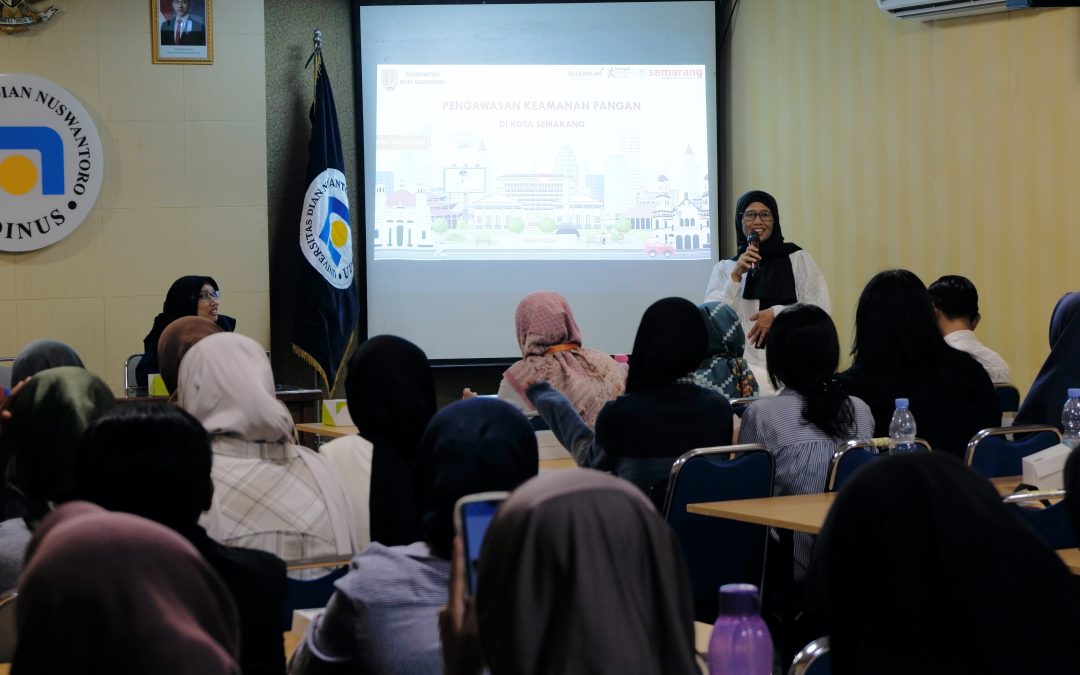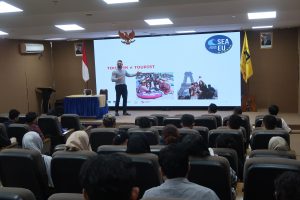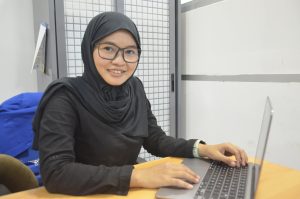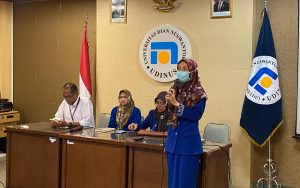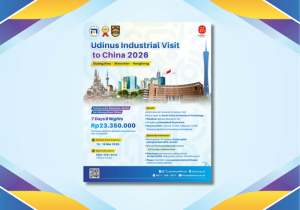The Environmental Health Department at Universitas Dian Nuswantoro (Udinus) provided insight to students concerning food security in Semarang. The insight was delivered through a public lecture on Wednesday, November 18, 2024.
The lecture took place on the first floor of the D Building at Udinus, the event was attended by dozens of Environmental Health students. The Environmental Health Department itself is a part of the Health Science Faculty at Udinus.
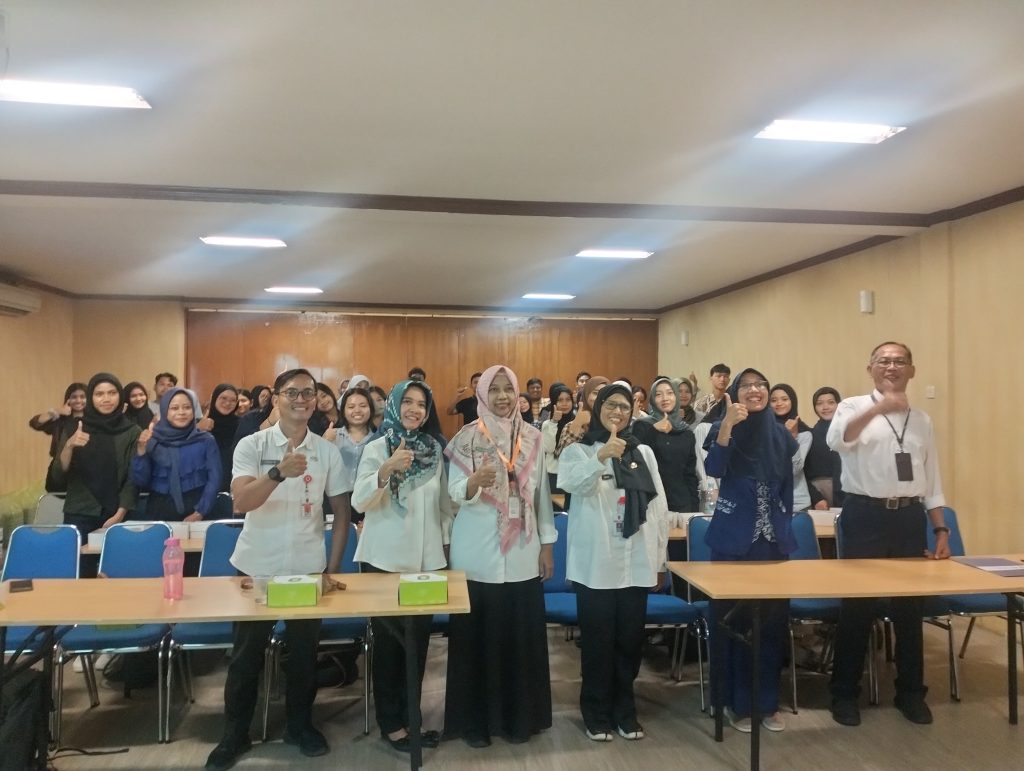
On that occasion, the public lecture featured Ir. Setyo Handayani, M.M., the Head of the Food Security division at the Food Security Agency of Semarang. He mainly discussed the ongoing food security. During the discussion, he emphasized that food was a basic need every human must fulfill to live on.
“Providing food security regulation is listed in the Indonesian Constitution No. 18 of 2012 concerning food security. It is important to note that there is also a section mentioning that the national and regional governments must ensure that food security is maintained in every food chain,” he explained.
In reality, there are still many food problems coming from internal and external aspects. The internal problems include the lack of supply, productive soil, and the rising poverty rate.
Meanwhile, the external problems mainly encompass the major increase in populations, the uncertainty of global situations, climate change, price increases, limits in food export, and the rise of prevalence in high-risk food and nutrients. For that reason, Setyo emphasized the importance of supervising the food security sector to face these unwanted situations.
“There are four main pillars of food security, with the first one being the food availability produced by locals. The second one is distribution by ensures the public can easily get access to food. The third pillar is the consumption by ensures diverse, balanced, healthy, and safe consumption patterns. The last one is ensuring safety by preventing food from being contaminated by physical, chemical, and biological pollution,” Setyo explained.
Furthermore, he mentioned that food security was an attempt conducted to prevent food from the possibility of pollution that could endanger public health, as well as ensure the food does not contradict the religious and cultural values of the public, allowing the food to be safe to consume.
The Importance of Collaboration to Maintain Food Security
Setyo uttered that the problems surrounding food security can be resolved by establishing a partnership with the whole academic community at Udinus. For example, the research ideas from academicians can potentially help maintain food security.
“Hopefully, we can establish a collaboration with the Health Science Faculty at Udinus, other agencies, and the government in conducting research. Thus, we can properly settle these problems concerning food security in Semarang. Students are also expected to come up with concepts of developing the proper guarantee of food security,” he uttered.
The statement provided by Setyo also aligned with the statement delivered by Dr. Drs. Slamet Isworo, M.Kes., the Head of the Environmental Health Department at Udinus. During his opening speech, he mentioned that food security was also among the field concentrations Environmental Health student could choose as their major competence.
“I hereby express my appreciation to the Food Security Agency of Semarang for educating our students. Hopefully, students can understand the lecture well, as well as benefit all parties. We also expect an opportunity for us to finally partner with the Food Security Agency of Semarang,” he concluded. (Humas Udinus/Ika. Foto: Humas Udinus)


